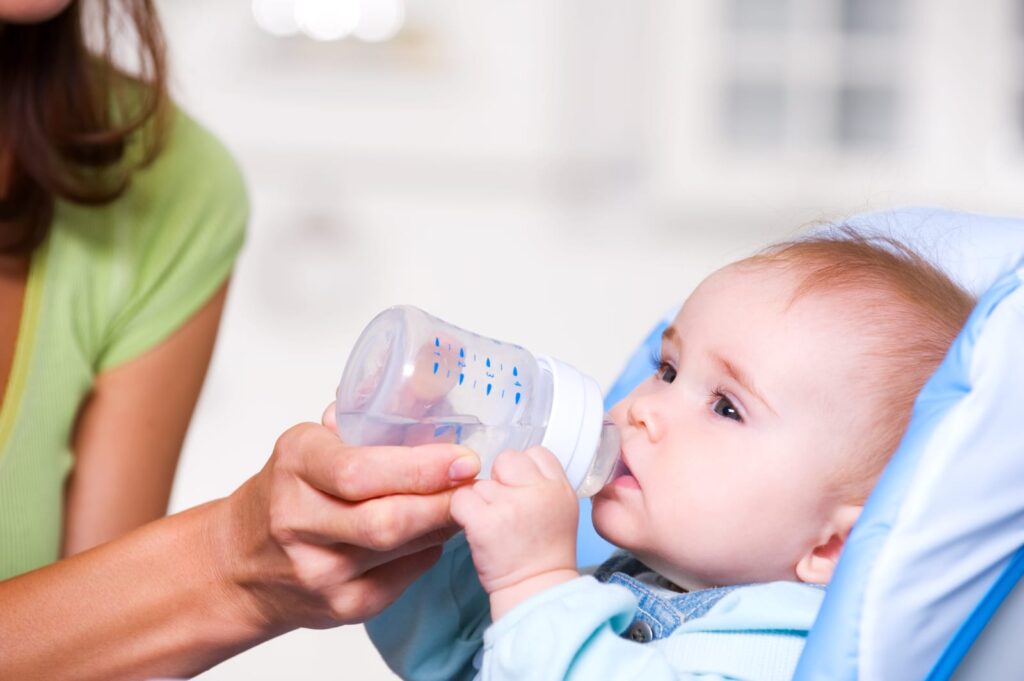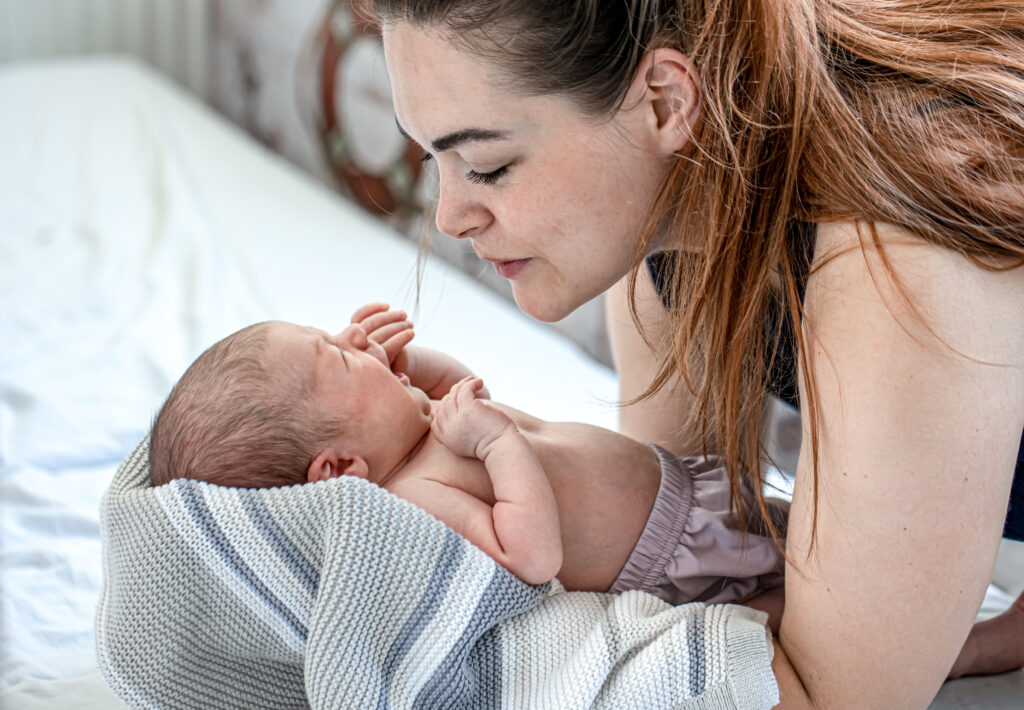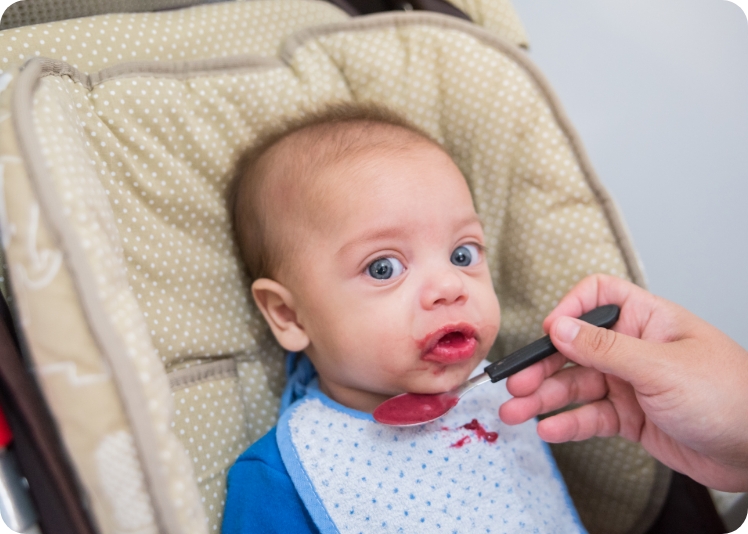In this article:
- Why is it important to take extra care of your baby in winter
- Common newborn winter concerns most parents worry about
- Symptoms of winter infections in babies
- 9 tips to take care of your little one this winter
- What if your baby gets sick in the winter
What a lovely time of the year – winter! But the daily temperature dips can make things challenging. As a parent, you want to keep your little one as far from those chilly winds as possible. It’s a good idea because your baby will be more susceptible to colds and illnesses since their immune system is still maturing.
Is merely distancing your baby from the wind enough? Absolutely not! Keeping your baby safe and healthy in the winter requires extra attention, hygiene, and care.
Read on to learn why winter means extra care for your newborn, what you can do to ensure your baby’s safety, and how vaccination and breastfeeding can protect your baby against some serious illnesses in winter.
Why is it important to take extra care of your baby in winter:
Newborns need constant care and attention. But winters ask for extra care.
When the temperature drops, the body goes through several changes to protect itself and its vital organs. Most of your baby’s energy is used to keep their body temperature at the right level. As a result, their immunity deteriorates.
The bacteria and viruses flourish in the winter and look for hosts to infect. When babies’ immune systems are weak, they are more likely to get infected and sick. This is why babies need additional care in the winter.
Here are some common newborn winter concerns most parents worry about:
The flu season lasts throughout the winter. It’s the time of the year when viruses are most contagious and spread quickly. This results in common winter illnesses like:
- Common cold, upper respiratory tract infection (URTI), bronchiolitis
- Croup, influenza
- Several respiratory-sensitive viruses affect the respiratory tract and cause significant breathing issues and cough
Symptoms of winter infections in babies:
Winter infections tend to have more pronounced symptoms, making them easier to identify. Look out for these signs of an illness in your baby:
- They have a fever, cough, and runny nose.
- They seem tired, weary or drowsy and irritable.
- They cough severely or throw up.
- They struggle to breathe, gasp or take short breaths.
- They wheeze when dozing off or after coughing.
- They have chest discomfort due to irritated lungs brought on by a respiratory illness.
9 tips to take care of your little one this winter:
1.  Keep your baby’s hygiene in check
Hygiene demands proper cleaning and regular bathing. Give your child a lukewarm bath on alternate days in the winter. Prefer to have baths later in the mornings or early afternoons. On the remaining days, clean them using a damp towel before changing their clothes. Maintaining hygiene helps reduce sickness and keeps your tiny tot’s skin hydrated.
2. Moisturize well and often
The dry air in winter can cause your baby’s skin to flake. To prevent this, use oils like mustard and coconut to give your baby a nice massage. Doing this twice a day will keep their skin well-moisturized. This also hydrates your baby’s innermost tissues and strengthens their bones.
3.  Go outdoors
Everyone knows that vitamin D from the sun strengthens bones and boosts immunity. After changing your baby’s clothes or after a bath, take them outside in the sun. It will warm up their body, help them produce vitamin D, and kill germs.
4.  Dress them up comfortably
Winter translates to lots of woolen layers for many parents. However, it’s important to be extra careful about layering. Too many of them can easily overheat your baby and make them uncomfortable and fussy. And very few layers can make them cold and weaken their immune systems.
Layering adequately helps keep your baby warm when temperatures change. The bottom layer can be snug and of soft cotton; the next layer can be pants and a long-sleeved shirt; the final layer can be a jacket, cap, and warm booties.
Go for breathable infant clothing. One more layer than you are wearing is a simple clue to the right number of layers of clothing for your baby.
A good way to check if your baby is warm enough is to check the back of their neck. If it’s sweaty, they have too many layers, and if it’s cold, they need more.
5.  Avoid heavy blankets
Winter blankets may seem like a good idea, but they are not. A big blanket will keep your baby warm, but it will be unpleasant for your baby as it will restrict their movement. Use a light blanket and maintain the room’s temperature.
6.  Maintain room temperature and humidity
Keeping your house and baby’s room warm protects them from cold winds. Lock your home’s windows and doors. Make sure your baby’s room and living room have proper ventilation and that your baby has access to fresh air. If necessary, use a heater to keep your tiny tot warm.
You should also use a humidifier in your baby’s room to keep the humidity level steady. This will make sure they do not suffer from dry skin and other infections and allergies due to extreme dryness.
7.  Immunization is essential
Your baby is more susceptible to infections in the winter due to low immunity. But that’s no excuse to forego vaccines for fear of making your baby sick.
Getting your child vaccinated on time is one of the most important things you can do to protect them from common illnesses and viruses. If you miss a dose, schedule a new date and get your baby immunized.
8.  Breast milk is the best milk
Breast milk is not just food for your baby. It gives your baby antibodies from your blood and nutrients to help them stay healthy and avoid getting sick. Continue nursing even if you have introduced food.
9.  Maintain self-hygiene
You are the first point of contact for your child. Hence, it is necessary for you to stay clean and healthy. Wash your hands and disinfect them with a sanitizer every time you attend to your child.
Germs can find the smallest way of reaching your baby, so make sure you stop all paths right away. If you have guests or visitors, politely ask them to wash their hands or use sanitizer before they attend to the baby.
What to do if your baby gets sick in the winter:
Even after you take all the precautions, your child may fall sick. If your infant gets sick in the winter, see a pediatrician. If they have a cold or flu, use saline solution or nasal drops to help them breathe. It will make them feel better. But be sure to always consult a doctor before giving them saline or nasal drops.
Keep your child hydrated. If they are breastfeeding, feed them on demand or at regular intervals. If your baby is older than six months, give them soup, buttermilk, or broth to keep their bodily fluids balanced.
As important as other precautions are, cuddling and spending time with your infant are equally important. Safety and comfort can help your baby fight off infections, not to mention feel so much better. If the infection worsens, call your baby’s doctor immediately.
If it’s your baby’s first winter, you are bound to worry a lot, but by taking precautions, you can keep your baby safe and healthy. Remember to maintain hygiene at all levels and keep your baby warm.
Which of the above tips do you think will be the most useful for you? Leave a comment and let us know if you want more of these tips!







